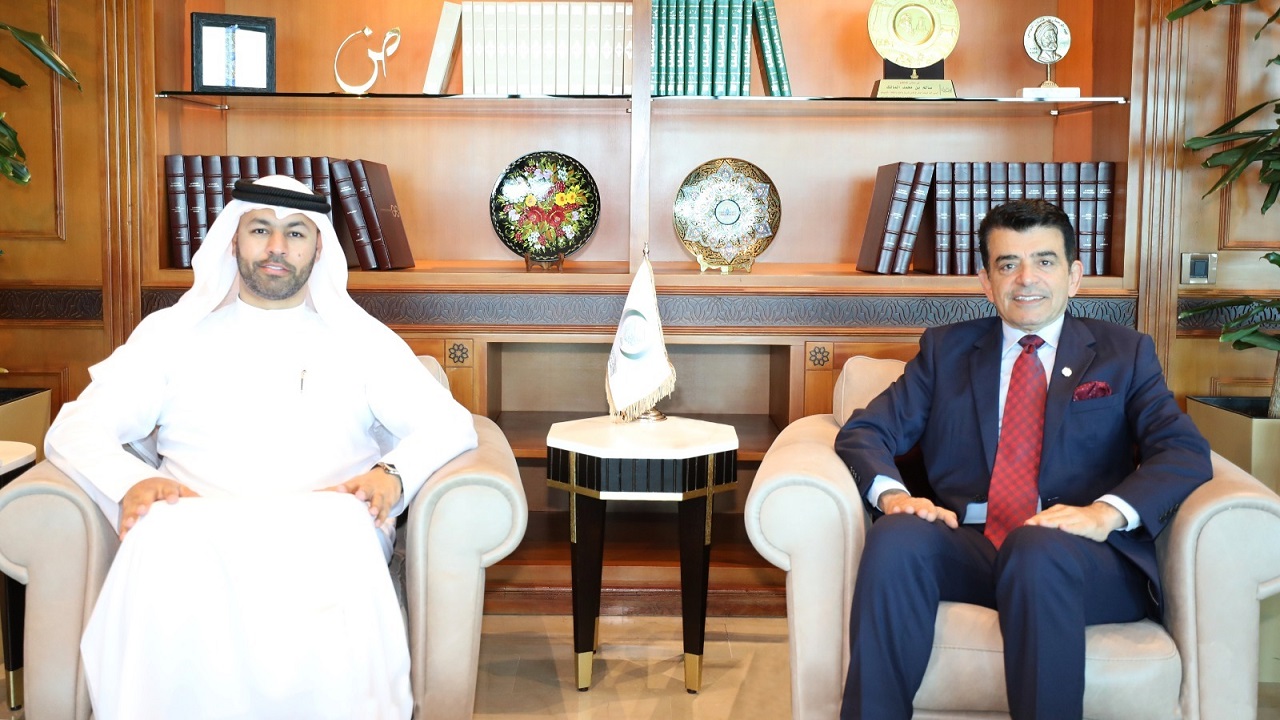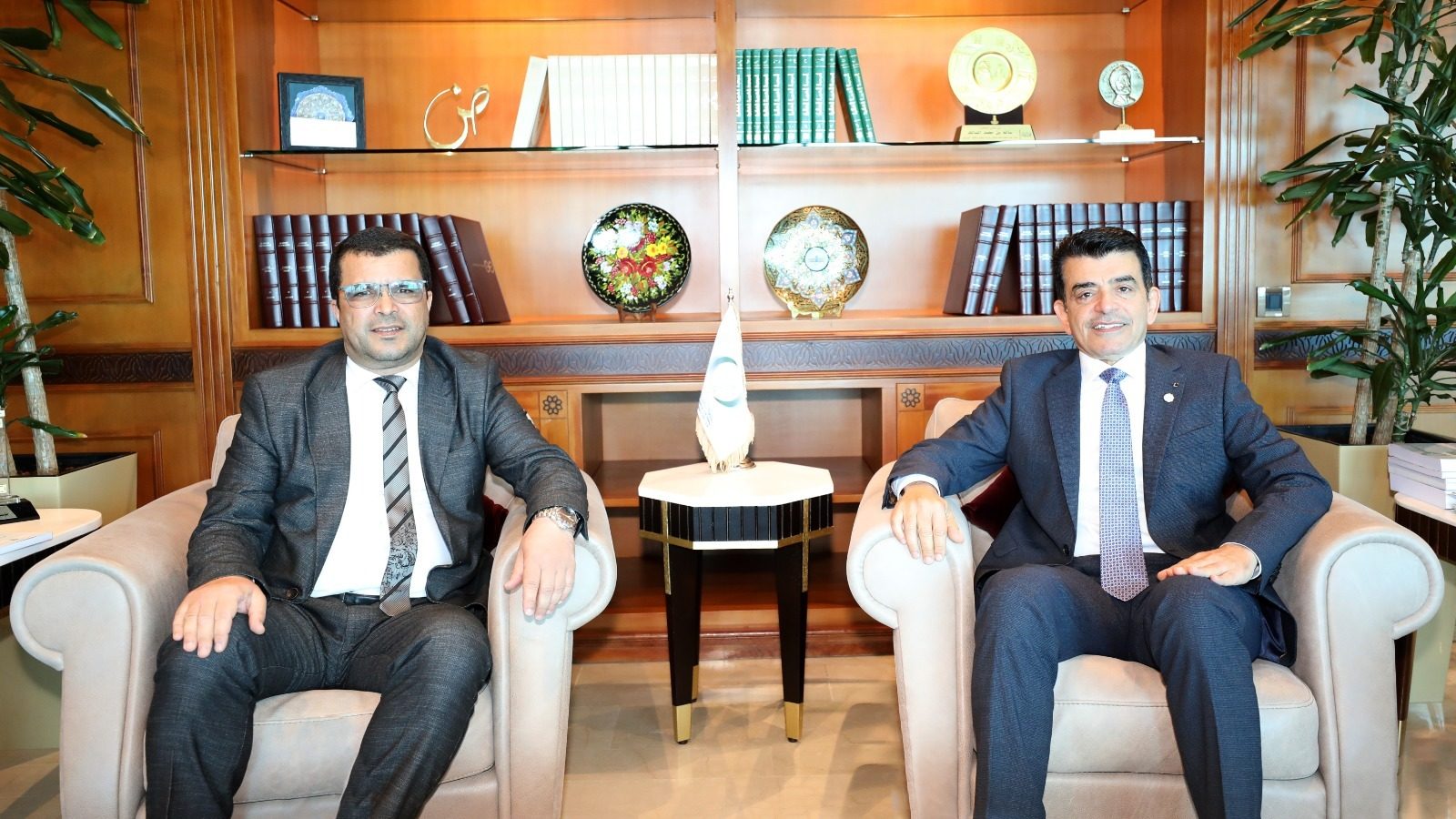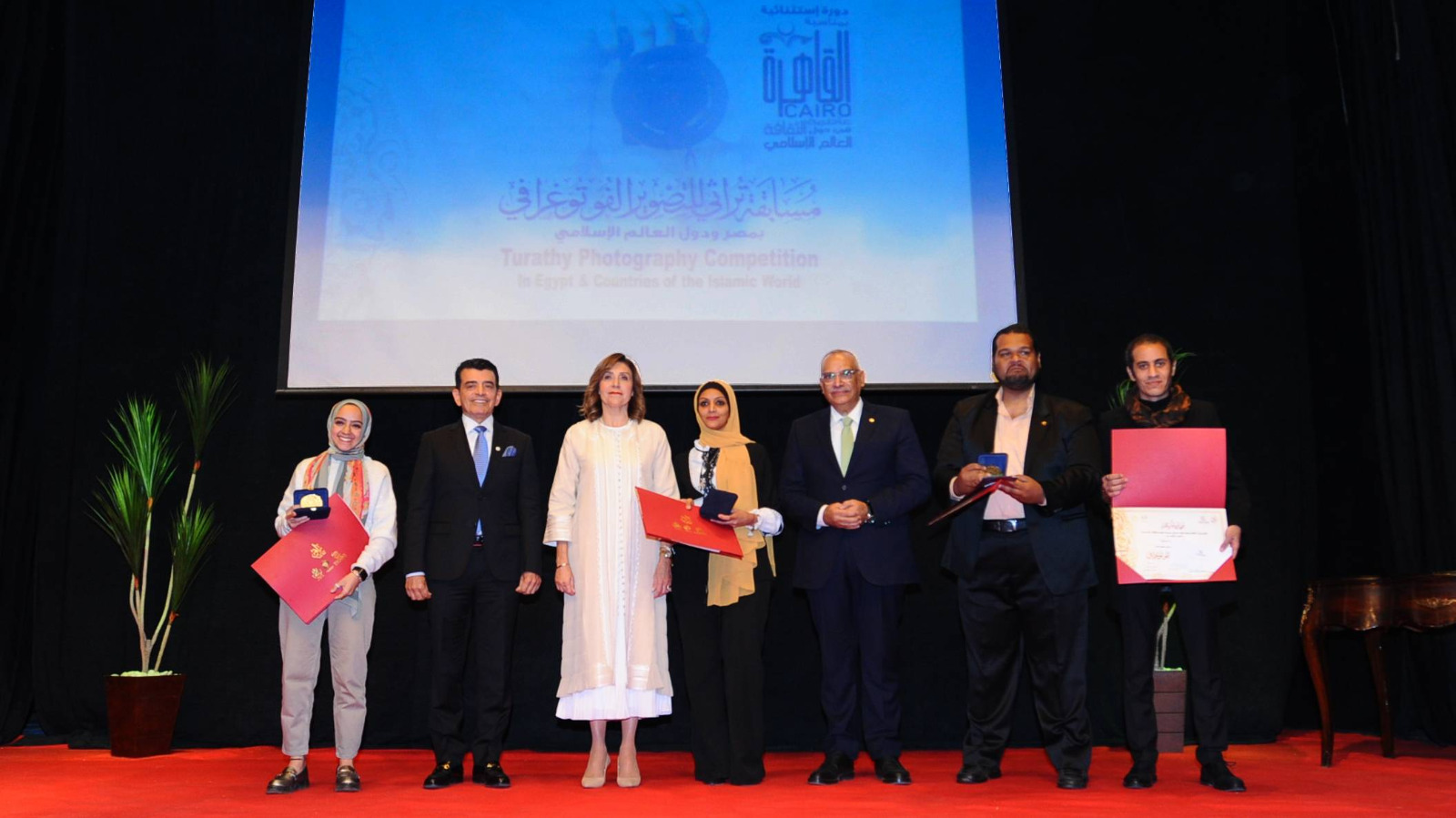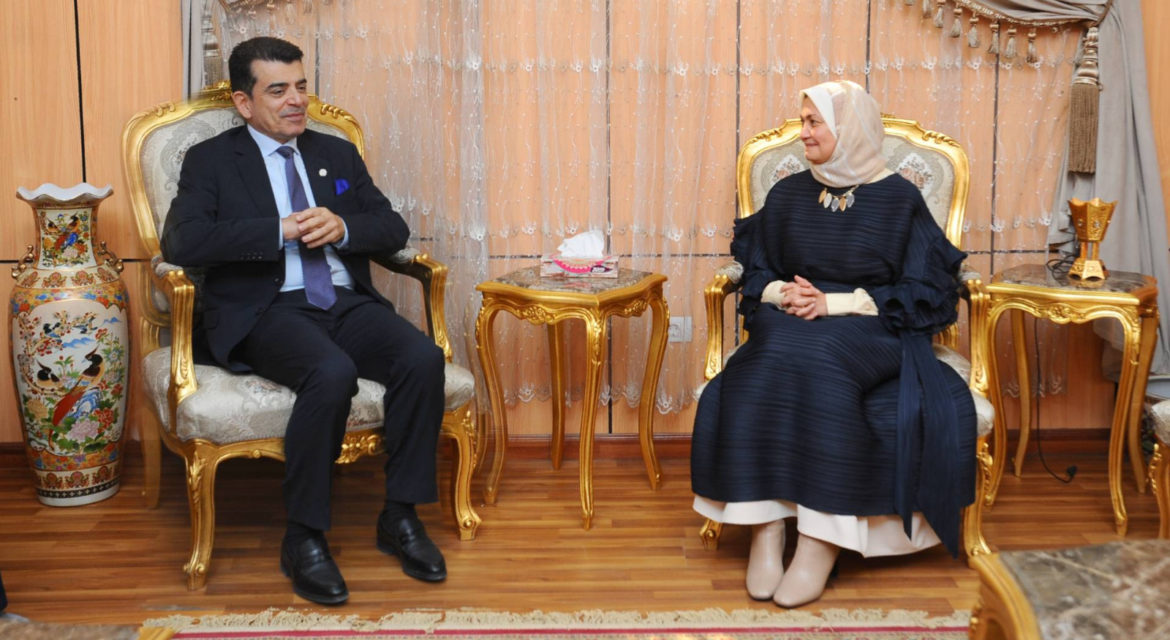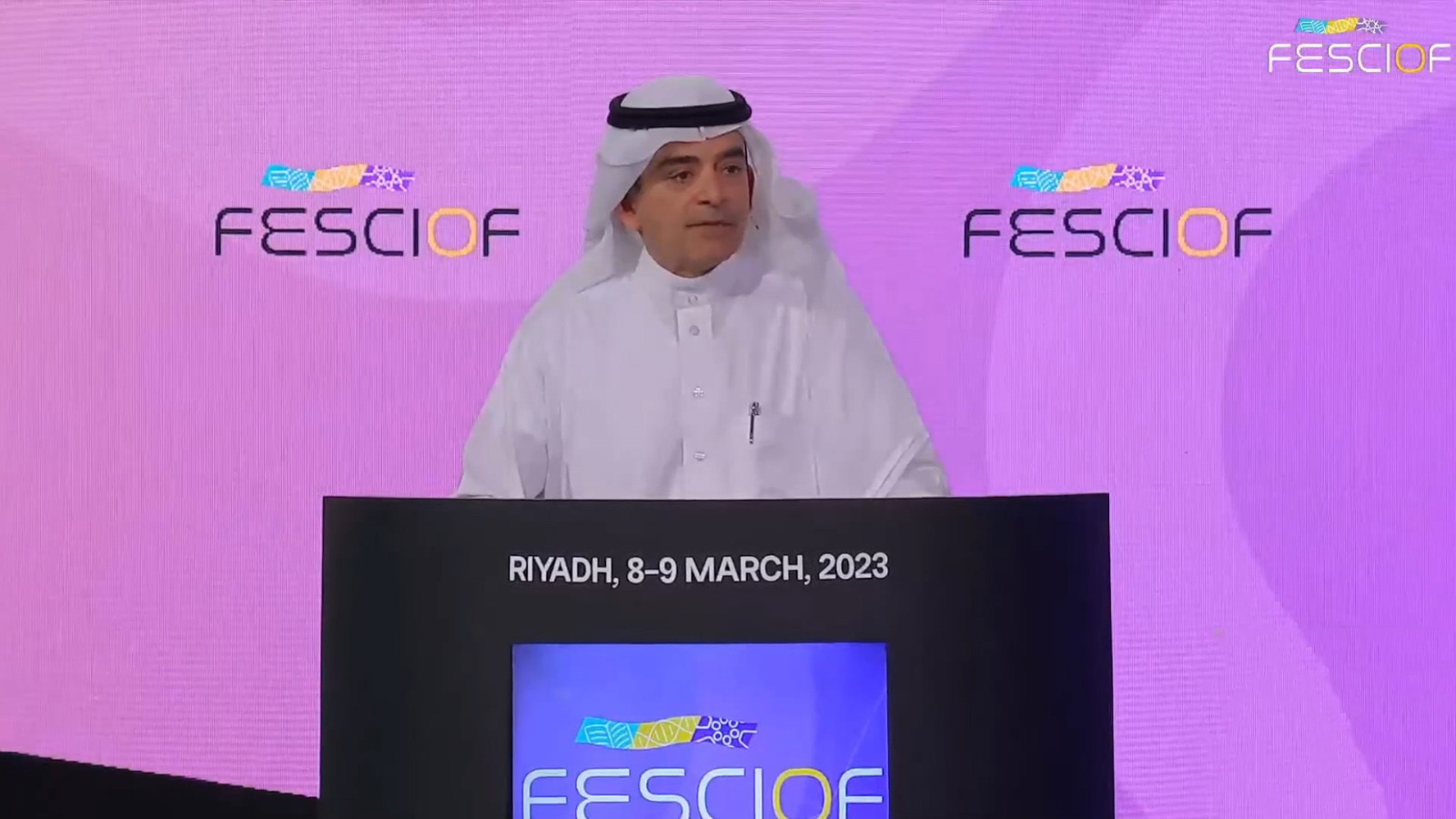Dr. Salim M. AlMalik, Director-General of the Islamic World Educational, Scientific and Cultural Organization (ICESCO), received Mr. Salim Omar Salim, Director of the Organization’s Regional Office in Sharjah, United Arab Emirates, and discussed ways and means of developing the Office’s work in line with ICESCO’s strategic vision in the fields of education, science and culture.
At the beginning of the meeting, held on Friday 17 March 2023, at ICESCO’s Headquarters, in Rabat, Dr. AlMalik congratulated Mr. Salim on his appointment as Director of ICESCO’s Regional Office in Sharjah, wishing him every success in his new mission and praising his competence and local and international experience in the field of culture.
ICESCO Director-General expressed his thanks and gratitude to His Highness Sheikh Dr. Sultan bin Muhammad Al-Qasimi, Member of the Supreme Council of the State of the United Arab Emirates, and Governor of Sharjah, for his continuing support to ICESCO.
For his part, Dr. Salim said that the Sharjah Regional Office embodies the important role played by the Organization in its fields of competence and expressed his aspiration to implement several programmes in several areas.
The meeting focused on the importance of the Office’s support for ICESCO’s initiatives and programmes, participation in the Organization’s activities to promote education, science and culture, and contribution to the implementation of its vision and strategy of action.
Afterward, Dr. Abdelilah Benarafa, Deputy Director-General, and several heads of sectors and directors of departments of ICESCO received the Director of the Organization’s Regional Office in Sharjah and introduced him closer to the mechanisms of the Organization’s activities and the main projects and programmes implemented by its sectors, departments and centers for the benefit of its Member States.

